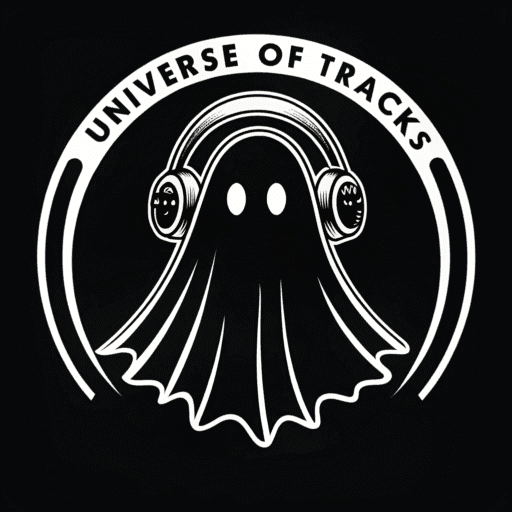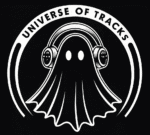Ghost Production vs Traditional Production: Which is Better for Your Music Career?
The debate between ghost production and traditional music production has intensified as the industry evolves. This comprehensive comparison reveals which approach best serves modern artists’ needs and career goals.
Understanding Both Approaches
Traditional Music Production
Traditional production involves artists creating their own music from start to finish:
- Personal Creation: Artist handles all production aspects
- Full Credit: Complete artistic ownership and recognition
- Creative Control: Total decision-making authority
- Learning Process: Skill development through practice
Ghost Production Method
Ghost production leverages professional producers for track creation:
- Professional Quality: Expert-level production standards
- Time Efficiency: Immediate access to finished tracks
- Cost Predictability: Fixed pricing per track
- Scalability: Multiple releases without production bottlenecks
Detailed Comparison Analysis
Time Investment
| Aspect | Traditional Production | Ghost Production |
|---|---|---|
| Learning Phase | 2-5 years to proficiency | No learning required |
| Per Track Time | 40-120 hours | Instant delivery |
| Skill Development | Continuous improvement | No production skills gained |
| Release Schedule | 1-3 tracks per month | Unlimited track access |
Financial Comparison
| Cost Factor | Traditional Production | Ghost Production |
|---|---|---|
| Equipment | $5,000 – $50,000+ | $0 |
| Software | $500 – $2,000/year | $0 |
| Studio Rent | $500 – $2,000/month | $0 |
| Per Track Cost | $200 – $1,000 (time value) | $299 – $2,000 |
Quality Assessment
Traditional Production Quality Factors
Self-produced track quality depends on:
- Skill Level: Years of experience required
- Equipment Quality: Significant investment needed
- Acoustic Environment: Proper studio setup essential
- Mixing Skills: Technical expertise required
- Mastering Ability: Specialized knowledge needed
Ghost Production Quality Advantages
Professional ghost production offers:
- Guaranteed Standards: Industry-level quality assurance
- Expert Techniques: Advanced production methods
- Professional Equipment: High-end studio access
- Mastering Included: Radio-ready final product
- Revision Options: Refinement until perfect
Career Impact Analysis
Traditional Production Career Benefits
- Authentic Artistry: Genuine creative expression
- Skill Portfolio: Valuable production abilities
- Industry Respect: Recognition for technical skills
- Creative Freedom: Unlimited artistic expression
- Long-term Value: Skills appreciate over time
Ghost Production Career Benefits
- Rapid Growth: Fast catalog expansion
- Market Focus: Concentrate on promotion and performance
- Consistent Quality: Professional standard maintenance
- Release Frequency: Meet industry demand
- Competitive Edge: Access to premium production
Genre-Specific Considerations
Electronic Dance Music (EDM)
EDM ghost production advantages:
- Technical Complexity: Advanced synthesis and processing
- Production Standards: High competition requires expertise
- Trend Awareness: Professional producers track market changes
- Sound Design: Unique elements require specialized skills
Pop and Commercial Music
Traditional production benefits in mainstream genres:
- Personal Branding: Authentic artist identity
- Songwriting Integration: Production serves composition
- Industry Connections: Producer relationships valuable
- Creative Control: Vision execution important
Hybrid Approach Strategy
Combining Both Methods
Smart artists utilize both ghost production and traditional production:
- Ghost Production for Volume: Maintain release frequency
- Traditional for Signature Tracks: Personal creative expression
- Learning Through Analysis: Study ghost productions
- Skill Development: Gradually increase self-production
Transition Strategy
Evolving from ghost production to traditional:
- Start with Ghost Production: Build audience and experience
- Analyze Purchased Tracks: Learn from professional examples
- Invest in Equipment: Gradually build studio setup
- Practice and Experiment: Develop production skills
- Blend Approaches: Mix self-produced and ghost-produced tracks
Success Metrics Comparison
Measuring Traditional Production Success
- Skill Development: Technical ability progression
- Creative Satisfaction: Artistic fulfillment levels
- Production Speed: Efficiency improvements
- Quality Consistency: Reliable output standards
Measuring Ghost Production Success
- Release Frequency: Catalog expansion rate
- Market Performance: Chart positions and streams
- Cost Efficiency: ROI on track purchases
- Career Growth: Booking and recognition increases
Industry Expert Opinions
Producer Perspectives
Established producers on ghost production:
- “Efficiency Tool”: Allows focus on creativity over technical execution
- “Quality Assurance”: Guarantees professional standards
- “Market Adaptation”: Keeps up with industry demands
- “Learning Resource”: Educational value in professional examples
Artist Testimonials
Successful artists using ghost production:
- Faster Career Growth: Rapid catalog development
- Performance Focus: More time for live shows and promotion
- Consistent Quality: Reliable track standards
- Reduced Stress: Elimination of production pressure
Making the Right Choice
Choose Traditional Production If:
- You enjoy the technical aspects of music creation
- Creative control is extremely important to you
- You have time to invest in skill development
- Your genre requires personal touch and authenticity
- You want to build production as a secondary career
Choose Ghost Production If:
- You prioritize performance and promotion over production
- Consistent release schedule is crucial for your career
- You want guaranteed professional quality
- Time constraints limit your production capacity
- You’re focused on DJ/performance career
Future Considerations
Industry Trends
The future of music production indicates:
- Increased Acceptance: Ghost production becoming mainstream
- Technology Integration: AI tools bridging both approaches
- Hybrid Models: Combination strategies gaining popularity
- Quality Standards: Rising expectations for all production methods
Conclusion
The choice between ghost production and traditional production isn’t binary. Successful modern artists often employ both strategies strategically, using ghost production for consistency and volume while developing traditional production skills for creative expression.
Your decision should align with your career goals, available resources, and artistic vision. Whether you choose professional ghost production, traditional methods, or a hybrid approach, the key is maintaining high quality and consistent output in today’s competitive music landscape.
Ready to explore professional ghost production options? Discover exclusive tracks at Universe of Tracks.

